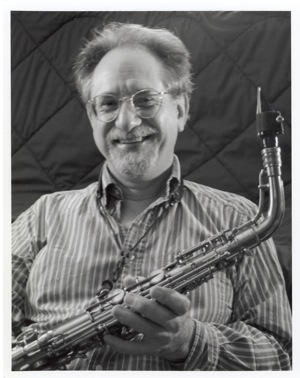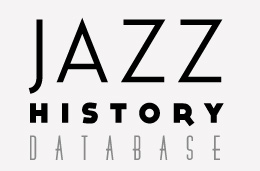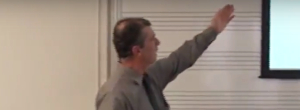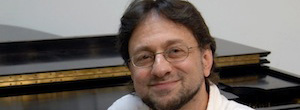
Born 1946 in St. Louis MO, Paul Combs moved with his family to Philadelphia, PA in 1953. His earliest musical training included singing in his church choir, where the choir director took the time to teach singing and develop good ensemble sense. Paul also played trombone in the band at his elementary school. Later he attended Central H.S., studying theory and counterpoint there and at the Settlement Music School. His first saxophone studies were with Buddy Savitt. He began playing professionally in 1963, as a saxophonist and singer in a small band that played mostly functions. He also began doubling on flute at this time, and bass a couple of years later.
He earned a Bachelor of Music degree, in Composition, from the Philadelphia Musical Academy (now the University of the Arts) in 1968. He stayed in Philadelphia until 1971, playing in various bands, writing music for theater, producing concerts and producing music programs for WUHY-FM (now WHYY-FM).
Around 1970 Paul Combs began a musical exploration of his Appalachian ancestry. His father, a college English professor, was from Kentucky but had chosen to turn his back on that part of his background. This exploration led Combs to set aside the saxophone for a few years. From 1971 to 1974 he concentrated on guitar and bass, both acoustic and electric. He toured as a solo singer/guitarist and backed up several folk singers and songwriters in concerts and on recordings. These singers included, among others, Paul Gerimia, Mary McCaslin, U. Utah Phillips, Jim Ringer, Paul Seibel and Rosalie Sorrels. He was also involved in the co-operative management movement as a charter member of both the Wildflowers and Buck ‘n’ Wing co-operatives.
In 1974 Paul Combs returned to the saxophone. He worked with and founded various bands, some of them in collaboration with his friends in the folk music community. He studied flute with Al McDonald and Sharon Zuckerman around this time. Paul also assisted songwriter Bob Franke in producing his first recording, Love Can’t Be Bitter All The Time. His attention increasingly turned to jazz, which had been at the heart of his musical inspiration since his childhood, and led one of the first bands booked into Cambridge, Massachusetts’s fondly remembered 1369 Jazz Club, in 1976. Paul also produced his first film score in 1976, for Len and Georgia Morris’ David Swann, an adaptation of a Nathaniel Hawthorn story.
In 1977 Combs attended the Creative Music Studio where he studied with Karl Berger, Jimmy Giuffre, Lee Konitz, Anthony Braxton, Roscoe Mitchell, and the late Don Cherry, among others. Later he moved to New York where he performed mostly in lofts such as The Brook and Environ, as well as some clubs. He also performed in The Masai, a music, dance and poetry work by fellow CMS alumnus, Kim Kimber.Unfortunately, complications in his personal life prevented him from taking full advantage of being in NYC and, in 1979, he returned to New England, where played in various rock bands and led his own jazz quartet. He also recorded with blues legends Robert Jr. Lockwood & Johnny Shines, whom he had met and performed with in the early seventies at the Smithsonian Folklife Festival in Washington, D.C., as well as with rockabilly star Sleepy LaBeef.
From 1983 to 1987 he operated SeaNote Productions, a commercial production facility, with internationally recognized composer Joel Biddle, an old friend from the Philadelphia Musical Academy. Together they wrote and produced sound tracks for several award winning short films. Paul also continued to perform with his own quartet and with various function bands in the Boston and southern New Hampshire areas.
In 1987 Paul and Joel Biddle decided to disband SeaNote in order to concentrate on other projects, and he began graduate studies at University of Massachusetts, Lowell, leading to a Master of Music degree in performance in 1995. During this time Combs began teaching music in elementary schools. From 1991 to 1999 he was on the music faculty of the Revere Public Schools. During the 1990s he also joined and became very active in the Massachusetts Music Educators Association, helping to found the state chapter of the Society for General Music. He also served as the Chair of SGM and on the Conference Committee of the All State In-Service Conference of MMEA. More recently he has been Jazz Education Editor of the Mass. Music News. Combs has been a frequent presenter of professional development sessions at the Conference, both for SGM and the state unit of the International Association of Jazz Educators, now the Massachusetts Association for Jazz Education. He has also served as Web/Newsletter Chair for this organization.
From 1999 to 2001, Paul Combs was President of the Seacoast Jazz Society, during which time he established the Society’s lecture series, which continues to this day. After his term as President he served as the Lecture Committee Chair of SJS, and these activities led to his tenure as a lecturer with the New Hampshire Humanities Council’s Humanities On The Go program.
In 1994, Paul Combs started to concentrate more and more on his jazz performance activities, organizing a flexible approach based on a core of musical associates. He performs regularly in ensembles of two, three, four musicians, and five musician. These ensembles are documented on four CDs, Hawk’s Delight (1995), The Things You All Are (1998), Moon & Sand (2000) and BeBop Christmas Card (2000). In 2001 he formed the nine-piece Pocket Big Band, which has released the CD Live At Chit Chat on the Sea Breeze Jazz label (SB-3073). He is also at work on a book about composer and arranger Tadd Dameron, which will be published by University of Michigan Press. The book, titled Dameronia – The Life and Music of Tadd Dameron, is to be released in December 2012.
Paul Combs has been a private teacher of saxophone and other wind instruments since 1970, teaching several different studios, some of them for many years. He currently teaches at his own studio in Cambridge, MA.
His personal website can be found here.







